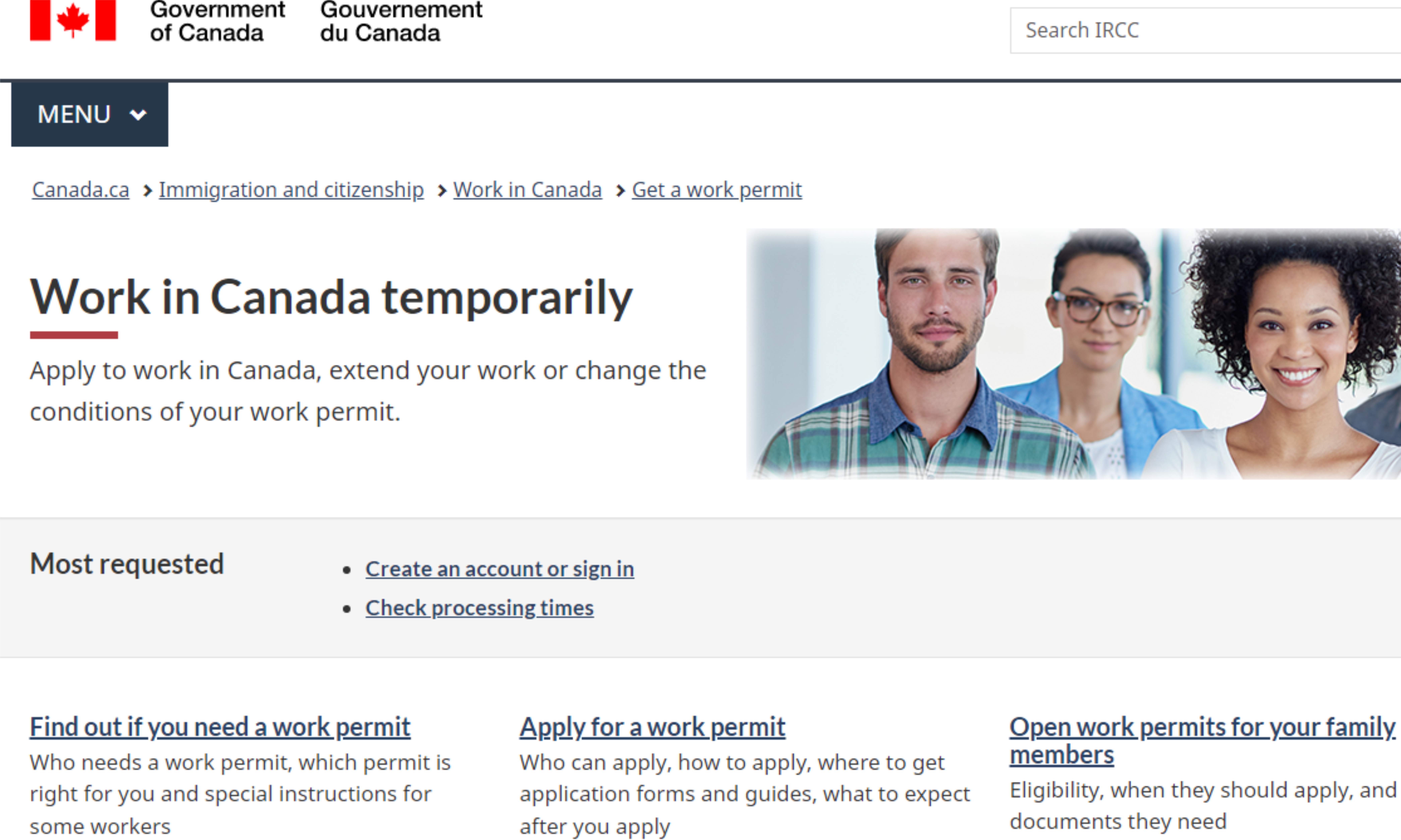Temporary Work Permit vs Permanent Residency: The Pros and Cons
Temporary Work Permit vs Permanent Residency: The Pros and Cons
When considering international work opportunities, it’s essential to understand the key differences between temporary work permits and permanent residency. These two immigration options offer distinct advantages and challenges, and choosing the right path can significantly impact your career and life abroad.
Temporary Work Permit
A temporary work permit is a document that allows an individual to work in a foreign country for a specified period. Its primary purpose is to fill short-term labor needs while protecting the domestic job market. These permits are typically tied to a specific job or employer and have a defined validity period.
There are various types of temporary work permits, each designed for different scenarios. For instance, some permits cater to skilled workers in specific industries, while others are meant for seasonal laborers or intra-company transferees. The type of permit you’re eligible for will depend on your qualifications, the job offer, and the specific regulations of the country you’re planning to work in.

To obtain a temporary work permit, you’ll need to meet certain eligibility requirements. These often include:
- A valid job offer from an employer in the host country
- Relevant qualifications and experience for the position
- In some cases, proof that no domestic worker is available to fill the role
- Clean criminal record and good health status
Read: Top 5 Best and Worst Job Recruitment Sites in Canada
The duration of a temporary work permit varies depending on the type of permit and the country’s regulations. Some permits may be valid for a few months, while others can last several years. Many countries also offer the option to renew these permits, subject to certain conditions.
Pros of Temporary Work Permits
Temporary work permits offer several advantages that make them an attractive option for many international workers:
- Faster processing: Compared to permanent residency applications, temporary work permits are often processed more quickly. This can be particularly beneficial if you’re looking to start your international work experience as soon as possible.
- Immediate employment: Once approved, a temporary work permit allows you to begin working right away. This means you can start earning and gaining valuable experience in your new country without delay.
- Canadian work experience: For those considering long-term immigration, a temporary work permit provides an opportunity to gain local work experience. This can be invaluable if you later decide to apply for permanent residency, as many countries favor applicants with domestic work experience.
- Potential pathway to permanent residency: Many countries view temporary work permits as a stepping stone to permanent residency. By working and integrating into the local community, you may strengthen your case for permanent status in the future.
While these advantages are significant, it’s important to note that temporary work permits also have limitations. In the next section, we’ll explore these constraints to provide a comprehensive understanding of this immigration option.
Cons of Temporary Work Permits
While temporary work permits offer several advantages, they also come with notable limitations:
1. Limited duration: As the name suggests, these permits have a finite validity period. This can create uncertainty and may require you to leave the country once your permit expires if you’re unable to renew or transition to another status.
2. Restrictions on changing employers: Many temporary work permits are tied to a specific employer or job. Changing jobs often requires applying for a new permit, which can be time-consuming and may limit your career flexibility.
3. Limited access to social benefits: Temporary workers may not have full access to the host country’s social benefits, such as unemployment insurance or pension plans. This can impact your financial security and long-term planning.
4. Uncertainty for long-term planning: The temporary nature of these permits can make it challenging to make long-term personal and professional plans, such as purchasing property or establishing deep roots in the community.
Read: Canada Startup Visa vs Self-Employed Work Permit: For Entrepreneurs
Permanent Residency
Permanent residency is a status that allows an individual to live and work indefinitely in a foreign country. It provides a more stable and long-term immigration option compared to temporary work permits.
The main pathways to permanent residency often include:
1. Skilled worker programs
2. Family sponsorship
3. Business or investor programs
4. Humanitarian and refugee programs
Eligibility requirements for permanent residency are typically more stringent than those for temporary work permits. They often include factors such as:
1. Education and work experience
2. Language proficiency
3. Age
4. Adaptability factors (e.g., previous work or study in the country)
5. Clean criminal record and good health status
The application process for permanent residency is generally more complex and time-consuming than that for temporary work permits. It often involves multiple steps, including:
1. Determining eligibility
2. Gathering and submitting extensive documentation
3. Undergoing medical examinations and security checks
4. Potentially attending interviews
The timeline for permanent residency applications can vary significantly, ranging from several months to several years, depending on the country and specific program.

Pros of Permanent Residency
The permanent residency offers several significant advantages:
1. Long-term stability and security: As a permanent resident, you can live and work in the country indefinitely, providing a stable foundation for your future.
2. Freedom to work for any employer: Unlike many temporary work permits, permanent residency allows you to work for any employer in the country, offering greater career flexibility.
3. Access to social benefits and healthcare: Permanent residents typically have access to the same social benefits and healthcare services as citizens, enhancing their quality of life and financial security.
4. Pathway to citizenship: Many countries offer permanent residents the opportunity to apply for citizenship after a certain period, providing even greater rights and privileges.
5. Ability to sponsor family members: Permanent residents often have the right to sponsor close family members for immigration, facilitating family reunification.
Cons of Permanent Residency
Despite its many advantages, permanent residency also has some drawbacks:
1. Longer and more complex application process: Obtaining permanent residency typically requires more time, effort, and documentation compared to temporary work permits.
2. Higher costs associated with application: The fees for permanent residency applications are often significantly higher than those for temporary permits, and may include additional costs for medical examinations and language tests.
3. Stricter eligibility requirements: The criteria for permanent residency are usually more demanding, potentially excluding some applicants who might qualify for temporary work permits.
4. Potential wait times for application processing: Due to the complexity of permanent residency applications, processing times can be lengthy, sometimes extending to several years depending on the country and program.
Understanding these pros and cons is crucial when deciding between a temporary work permit and permanent residency. Your choice should align with your long-term goals, personal circumstances, and the specific regulations of your desired destination country.

Comparison of Key Factors
To help you make an informed decision, let’s compare temporary work permits and permanent residency across several key factors:
1. Duration of stay: Temporary work permits offer a limited stay, usually ranging from a few months to several years, with the possibility of renewal. Permanent residency, as the name suggests, allows for indefinite stay in the country.
2. Employment flexibility: Temporary work permits often restrict you to a specific employer or job sector, while permanent residency typically allows you to work for any employer or be self-employed.
3. Access to social benefits and healthcare: Temporary workers may have limited access to social benefits and healthcare, whereas permanent residents usually enjoy the same benefits as citizens.
4. Family reunification options: Temporary work permits may have limited options for bringing family members, while permanent residents often have more comprehensive family sponsorship rights.
5. Path to citizenship: Temporary work permits do not directly lead to citizenship, though they may provide valuable experience for future permanent residency applications. Permanent residency is often a prerequisite for citizenship applications.
Read: Working in Canada vs Working in the US: A Comparative Analysis
Factors to Consider When Choosing
When deciding between a temporary work permit and permanent residency, consider the following:
1. Personal and career goals: Assess whether your primary objective is short-term work experience or long-term settlement in the country.
2. Family situation: Consider your family’s needs and whether you plan to bring them with you immediately or in the future.
3. Financial considerations: Evaluate the costs associated with each option, including application fees, potential relocation expenses, and long-term financial planning.
4. Long-term plans in the country: Reflect on whether you see yourself living in the country for an extended period or if you’re open to returning to your home country after gaining work experience.
Transitioning from Temporary to Permanent Status
Many individuals start with a temporary work permit and later transition to permanent residency. This approach offers several advantages:
1. Options for transitioning: Many countries have pathways that allow temporary workers to apply for permanent residency. These may include:
– Express Entry systems that favor candidates with local work experience
– Employer-sponsored permanent residency programs
– Provincial or regional nomination programs
2. Advantages of using temporary status as a stepping stone:
– Gain valuable local work experience, which often boosts your eligibility for permanent residency
– Familiarize yourself with the country’s culture and work environment before committing to permanent settlement
– Build professional networks and relationships that can support your permanent residency application
– Demonstrate your ability to integrate into the local community and contribute to the economy
By starting with a temporary work permit, you can “test the waters” and strengthen your case for permanent residency if you decide to settle in the country long-term. This approach allows for a smoother transition and can increase your chances of success in the permanent residency application process.
Ultimately, the choice between a temporary work permit and permanent residency depends on your circumstances, goals, and the specific regulations of the country you’re interested in. By carefully considering the pros and cons of each option and how they align with your personal and professional objectives, you can make an informed decision that best supports your international career aspirations.

I need Canadian permanent visa for work